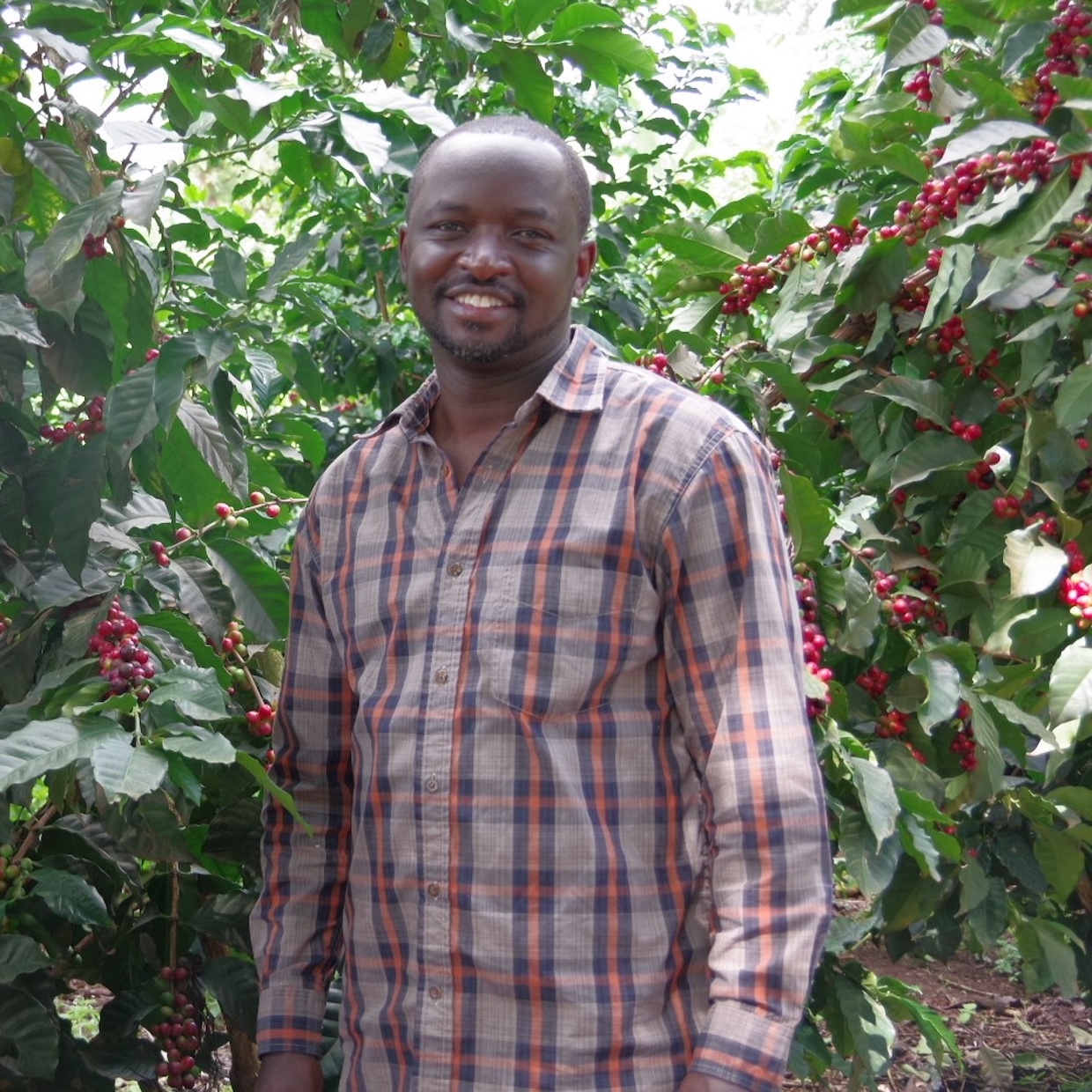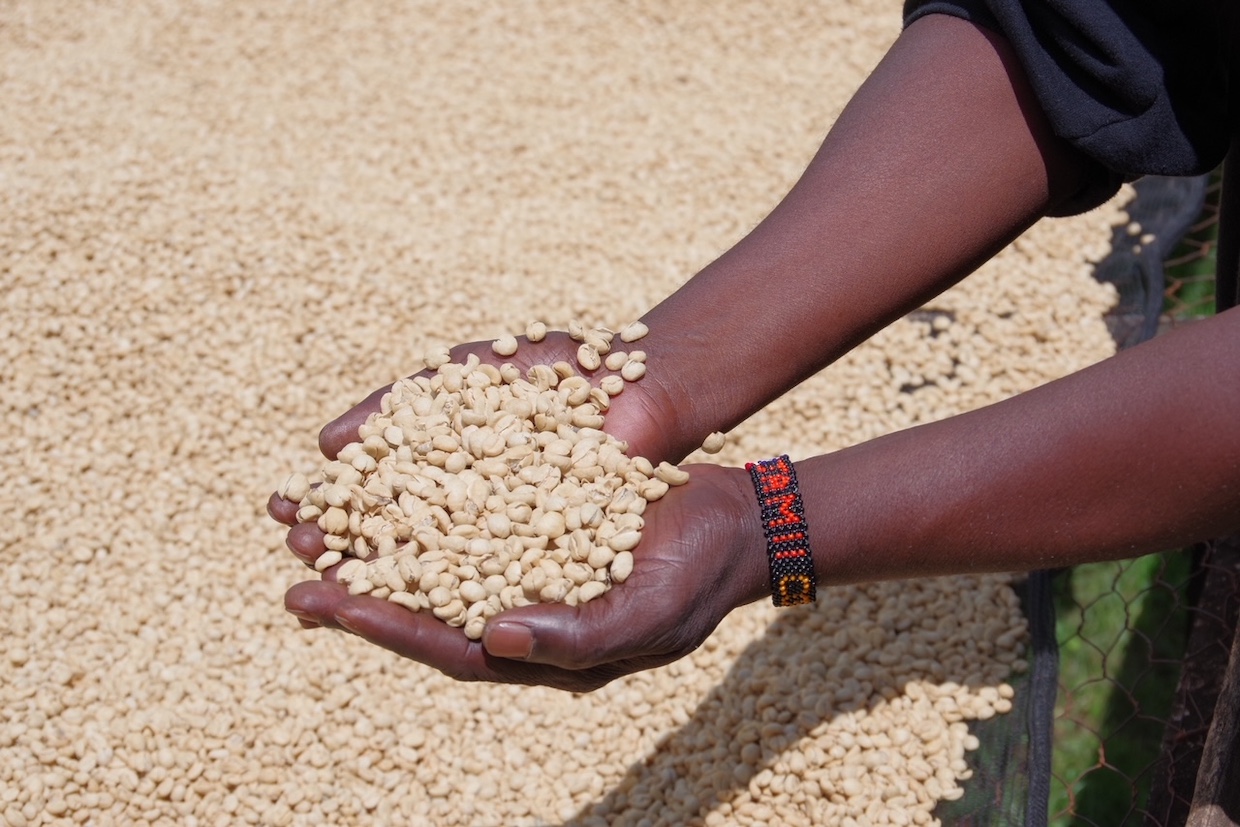Francis Kungu can recall his younger days sitting with his friends at a pub across the street from a coffee farm in rural Kenya.
“We used to swear that we’d never work in coffee because it was almost like a poverty trap,” Kungu said. “I think coffee has always been a part of me, but I never wanted to be in coffee.”
From growing up witnessing first-hand the financial struggles of smallholder coffee farmers in Kenya, Kungu is now working to help boost farmer income through a United States green coffee import company of his own called Jamii Coffee.
Based about 25 miles southwest of Portland in Dundee, Oregon, Jamii Coffee operates on the principle that “coffee belongs to the farmer” as the company seeks to provide tangible economic benefit to rural coffee-farming communities in Kenya.
Francis Kungu moved to the United States in 2007 and was training to become a pilot when one of his instructors gave him a gift that would ultimately change his career trajectory: a Starbucks gift card.
“I’d never seen plastic before except for a bank card,” Kungu recently told DCN. “I had [a $25 card] and wondered where I could get the cash.”
After finding a Starbucks, Kungu found a cafe full of people drinking coffee. The sight illuminated a profound disconnect between Kenya and the U.S. Said Kungu, “Why don’t we want to grow coffee if a lot of people are drinking it?”
This inspired Kungu to begin researching the international coffee trade. Finding no local mentors — “there were no Africans doing it,” Kungu said — he turned to books.
Through conversations with other Kenyans, Kungu also learned that there was a lot of confusion on how to export coffee from Kenya — a phenomenon he experienced while trying to get samples to the U.S.
“Kenya is complex,” said Kungu. “The way we do business is very complex.”
By 2016, Francis’s research resulted in the formal launch of Jamii Coffee, which set out to connect Kenyan coffee farmers with U.S. roasters.
Soon after, he set off to Kenya to better understand the supply chain and build connections. There, he met a woman farming coffee who taught him everything she knew, from seedlings to the drying table.
“This lady teaches me everything, and then she gets to the drying table and tells me, ‘After this, I don’t know what happens; my husband takes over,’” Kungu said.
He tried unsuccessfully to get more information from the husband, and was equally unsuccessful in attempts to visit other wet mills to learn about the processing and export business.
Said Kungu, “I came back deflated and didn’t know what to do.”
A year later, in 2017, one key gate flew open. It belonged to a cooperative that had established its own trading company and was seeking partners. Kungu established contact and Jamii Coffee’s first direct trade was soon in the books. Today, Jamii works closely with Charles Mutwiri of the Mukarimu Farm in Meru County and Derek Mbugua of the Imani Farm in Kiambu County.
To date, Jamii Coffee has worked with approximately 3,000 small-scale farmers, building direct trade relationships, including to his own roasting company based in Oregon, Exilior Coffee.
Here’s more from DCN’s recent conversation with Francis Kungu…
What about coffee excites you most?
If it’s done right, coffee has the potential to improve and take people’s lives out of economic depression. In Kenya, we have a coffee ritual that’s mostly on the coast, and we need to start talking about it. It has the potential to bring people together.
I’m also excited about the technologies that have come out, and how we’re going to be able to make a better brew and just see people enjoying a cup of coffee.
What about coffee troubles you most?
What troubles me is that we don’t understand that this crop is dying. Climate change is happening. In Kenya, what used to be a main crop is becoming a fly crop. It’s raining more. It’s flooding. It should not be flooding. People do not understand. When I hear someone say the quality has gone down, they don’t understand why. Even the drought affects farmers who don’t have the resources to be able to pump water.
I have also learned that coffee is one of the best crops to harness carbon from the atmosphere. It stores it on the leaves… For coffee to be effective in doing that, it needs shade, but we have cut down most of the trees. Coffee is a shade crop that doesn’t have shade, so it’s not even doing what it’s supposed to do for nature.
What would you be doing if it weren’t for coffee?
I’d definitely be working in agriculture. That’s a dream I had since I was a kid. When somebody would ask me what I wanted to be when I grew up, I said I wanted to be an agricultural extension officer so that I could help farmers produce better with the same piece of land.
Is there someone in the coffee industry who inspires you? Nominate them for a Three Questions feature here.
Related Posts
Jen Roberts
Jen Roberts is a Paris, France-based writer and avid coffee drinker. She’s currently writing a book on women in coffee.








Comment